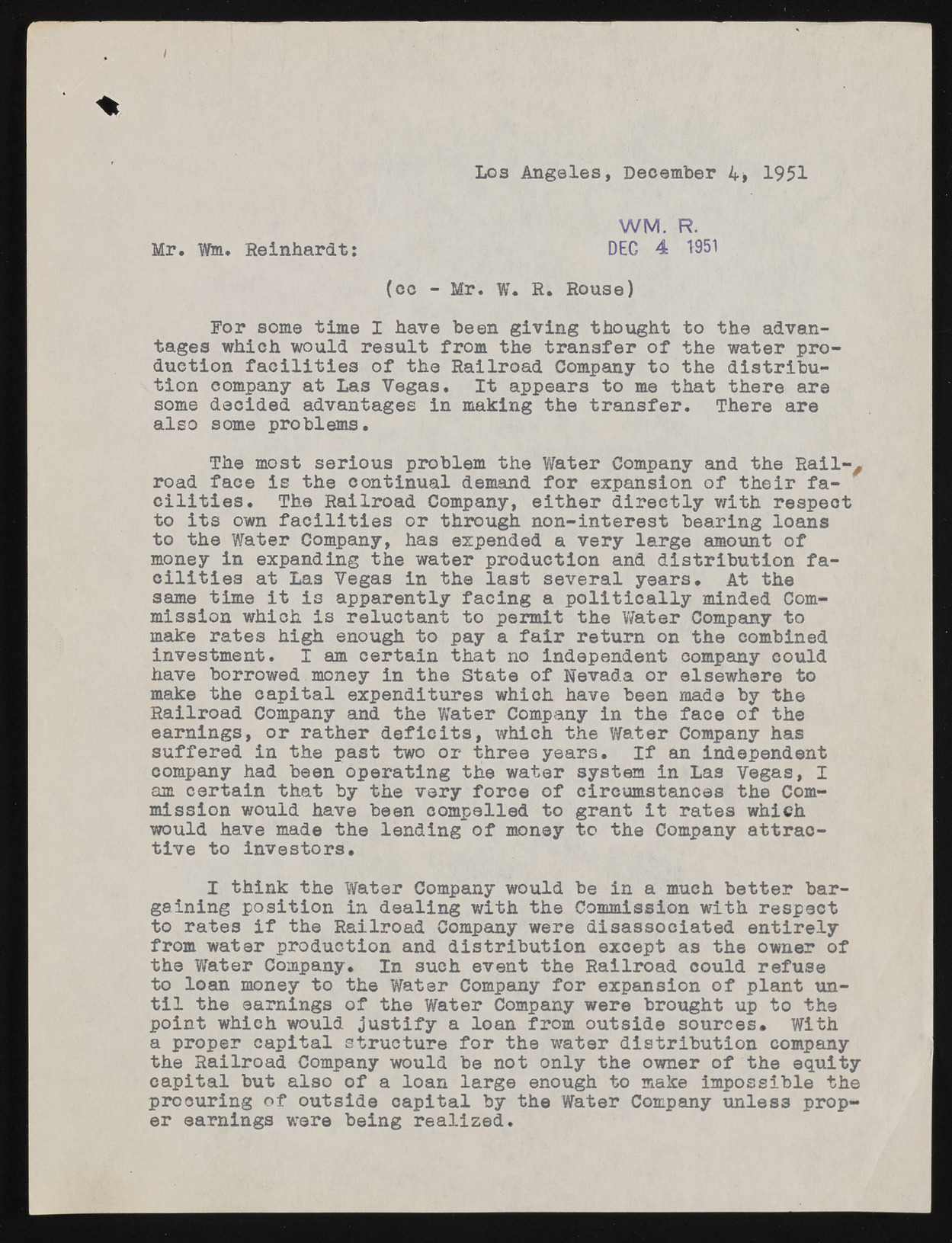Copyright & Fair-use Agreement
UNLV Special Collections provides copies of materials to facilitate private study, scholarship, or research. Material not in the public domain may be used according to fair use of copyrighted materials as defined by copyright law. Please cite us.
Please note that UNLV may not own the copyright to these materials and cannot provide permission to publish or distribute materials when UNLV is not the copyright holder. The user is solely responsible for determining the copyright status of materials and obtaining permission to use material from the copyright holder and for determining whether any permissions relating to any other rights are necessary for the intended use, and for obtaining all required permissions beyond that allowed by fair use.
Read more about our reproduction and use policy.
I agree.Information
Digital ID
Permalink
Details
Member of
More Info
Rights
Digital Provenance
Publisher
Transcription
I % Los Angeles, December 4* 1951 WM. R. Mr. Wm. Reinhardt: DEC 4 1951 (cc - Mr. W. R. Rouse) For some time I have been giving thought to the advantages which would result from the transfer of the water production facilities of the Railroad Company to the distribution company at Las Vegas. It appears to me that there are some decided advantages in making the transfer. There are also some problems. The most serious problem the Water Company and the Rail-^ road face is the continual demand for expansion of their facilities. The Railroad Company, either directly with respect to its own facilities or through non-interest bearing loans to the Water Company, has expended a very large amount of money in expanding the water production and distribution facilities at Las Vegas in the last several years. At the same time it is apparently facing a politically minded Commission which is reluctant to permit the Water Company to make rates high enough to pay a fair return on the combined investment. I am certain that no independent company could have borrowed money in the State of Nevada or elsewhere to make the capital expenditures which have been made by the Railroad Company and the Water Company in the face of the earnings, or rather deficits, which the Water Company has suffered in the past two or three years. If an independent company had been operating the water system in Las Vegas, I am certain that by the very force of circumstances the Commission would have been compelled to grant it rates which would have made the lending of money to the Company attractive to investors. I think the Water Company would be in a much better bargaining position in dealing with the Commission with respect to rates if the Railroad Company were disassociated entirely from water production and distribution except as the owner of the Water Company. In such event the Railroad could refuse to loan money to the Water Company for expansion of plant until the earnings of the Water Company were brought up to the point which would justify a loan from outside sources. With a proper capital structure for the water distribution company the Railroad Company would be not only the owner of the equity capital but also of a loan large enough to make impossible the procuring of outside capital by the Water Company unless proper earnings were being realized.

